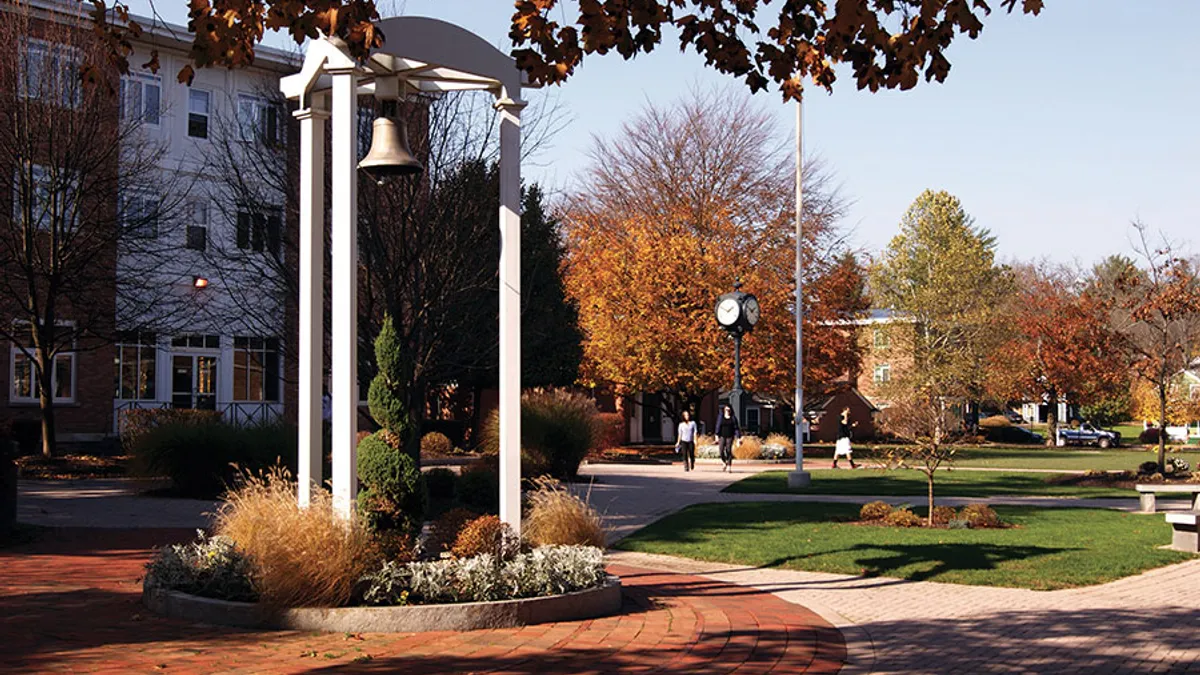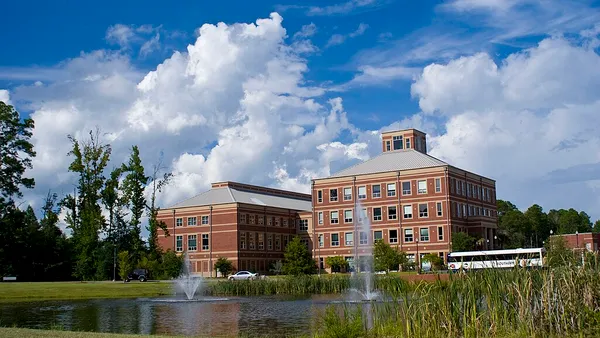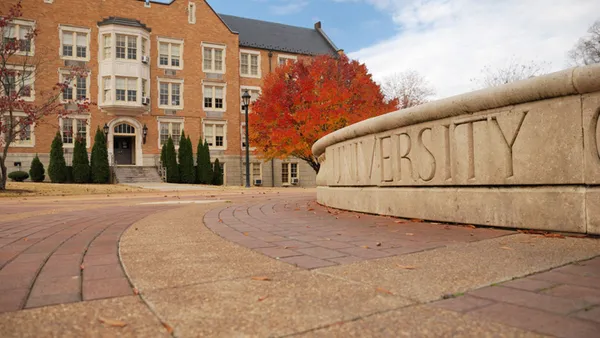Dive Brief:
- Cazenovia College, a small, private nonprofit institution in central New York, said Wednesday it will close at the end of the academic year, citing poor finances aggravated by the coronavirus pandemic and surging inflation.
- The college said its enrollment once peaked at almost 1,000 students but has since fallen by more than 40%. The college did not provide its current enrollment figures, but federal data shows it had nearly 750 students in fall 2021.
- Cazenovia has struck teach-out agreements with institutions where students can transfer. Among them are Excelsior University, Hilbert College and the State University of New York College at Oneonta.
Dive Insight:
Cazenovia’s demise likely comes as no shock to those following its financial saga.
In September, the college defaulted on a $25 million bond payment. This is a rare occurrence for nonprofit colleges but signals major institutional distress. Ohio Valley University, a small Christian college in West Virginia, closed last year after it began defaulting on bonds in 2019.
Cazenovia borrowed the $25 million via bonds in 2019. At the time, the college was trying to refinance long-term debt as well as fund capital projects.
Even when the payment due date was extended by about a month — from the beginning of September to October — the college could not scrounge up new financing.
It said Wednesday it had succumbed to financial pressures, including uncertain bond and stock markets.
Cazenovia said it invested in technology and campus health and safety measures amid the pandemic, racking up heavy new expenses even as enrollment declined. Some students had opted to defer enrollment or take leaves of absence, the college said.
Additionally, Cazenovia contended that maintaining enrollment levels was challenging for small private institutions like itself, particularly with shrinking numbers of traditional college-age students in some areas of the U.S. The higher ed sector faces a decline in the number of high school graduates in the coming years, the effect of lower birth rates during the Great Recession.
A representative from Fitch Ratings, one of the major credit ratings agencies, told Higher Ed Dive in October that a possible contributor to Cazenovia’s middling enrollment was New York’s Excelsior Scholarship.
The initiative — which allows students from families earning up to $125,000 a year to enroll in a public college tuition free — may have rerouted students from more pricey private institutions to state ones.
Tuition, room and board at Cazenovia total more than $51,000 a year. However, few students pay full freight. The college’s net price — how much students pay after deducting scholarships and grants from tuition and fees — averaged more than $18,400 in the 2020-21 academic year, federal data shows.
All of the headwinds proved too much for the college, Ken Gardiner, chair of Cazenovia’s trustee board, said in a statement.
“We’re deeply disappointed that it has come to this,” Gardiner said. “Considerable time and effort have been spent on improving the College’s financial position over the past several years.”
The college said it will host spring commencement, but it will shut down afterward. As of Wednesday afternoon, it had established teach-out agreements with nine institutions but expected to add more.
Cazenovia was just shy of its 200th birthday. It was founded in 1824 as the Seminary of the Genese Conference.
The Methodist Church later withdrew its support and the governing body reorganized it in 1942 as a preparatory school, Cazenovia Junior College. It then morphed into a women’s college, Cazenovia College for Women, in 1961 before returning to a co-ed model in 1982 under the Cazenovia College banner.
It started its first graduate program, a Master of Science in Clinical Mental Health Counseling, in 2019.
“We really are a family on this campus,” David Bergh, Cazenovia’s president, said in a statement. “It is an extremely difficult time for all of us, but we remain committed to students, faculty, staff and alumni.”















